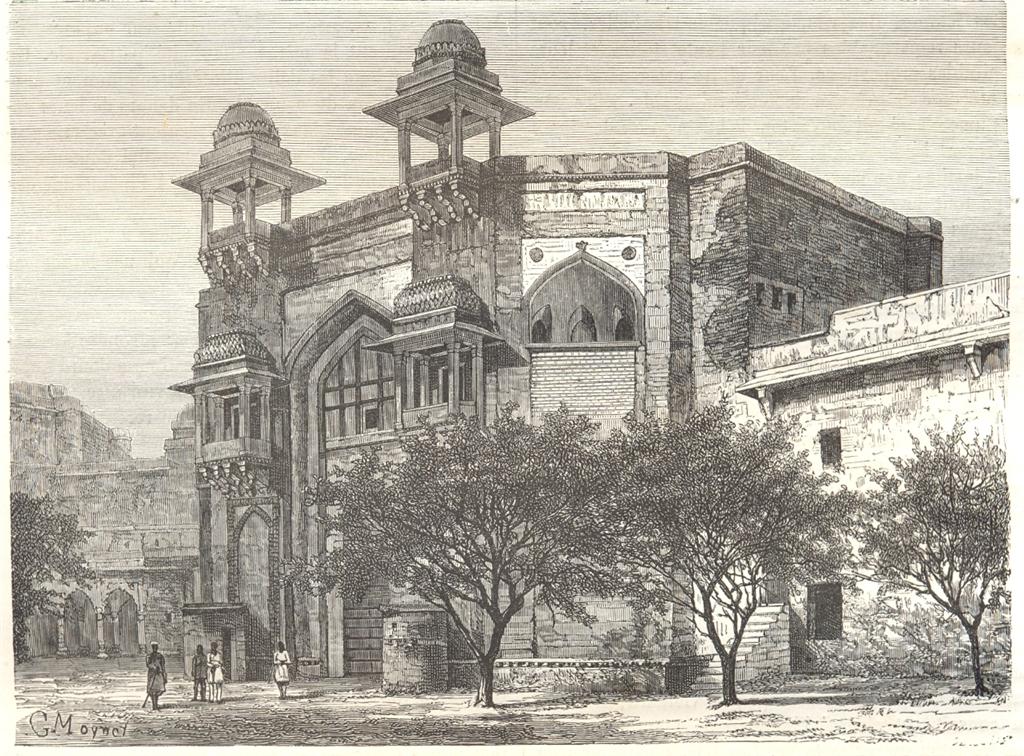FWP:
SETS == MULTIVALENT WORDS ( balā ); SYMMETRY
GAZE: {10,12}
HOME: {14,9}
ABOUT balā expressions: The colloquial expression balā se is a generalized malediction, wishing evil on whatever is mentioned. 'To hell with!' is probably the nearest we can get in English. Here are additional examples of this idiomatic usage: {91,9}; {99,4}, in the fuller form merī balā se ; {107,2}; {234,2}. (It mustn't be confused with bhalā ; on this latter expression see {21,11}.) A use of balā alone, to mean something like 'fearfully much': {6,8x}. Platts really struggles to capture such usages; see his elaborate definition above. For contrast, here are some 'straight' uses of the word balā : {20,8}; {21,13}; {57,9}.
ABOUT refrains in translation: I once did a translation of this
ghazal that sought to preserve both rhyme
and refrain. Versions of
it were published in an article
on the ghazal, co-authored with S. R. Faruqi, and also as an appendix
to Nets of Awareness.
Needless to say, it's not easy to preserve both; it's easier to preserve just
the refrain, and most English-knowers will hardly even register the awkwardly-achieved
additional presence of the rhyme. Obviously, only a handful of ghazals with
unusually suitable refrains will lend themselves at all well to this kind
of translation. If anybody wants to try, I recommend {5}
('burned'); {49} ('wave of wine'); {57}
('after me'); {75} ('candle'); and {80}
('rose'). Since 'after me' works, you'd think {208},
'before me', would work too, but it doesn't (unless you omit some verses);
try it and you'll see why. Nor does {73}, 'fire'. But then, there's also the odd little {127}, with the refrain koʾī nah ho .
The phrase dar-o-dīvār is a kind of petrified idiomatic whole: it takes plural verbs, and refers to doors and walls in general, not one single particular door and wall. Thus it also easily becomes a synecdoche (part-for-the-whole metaphor) for a house or home.
Some modern editors (including Hamid) have yih in lieu of bah . As always, I follow Arshi.
In its apparent simplicity, this verse offers some enjoyable word/meaning plays. The 'doors and walls that are before the sight' in the first line may be so described merely casually, to identify them: the physical ones, the ones the speaker can see. But they may also be 'before the eyes' in the sense that they are blocking the lover's vision and preventing him from seeing what is beyond them, the way a blindfold 'before the eyes' would interfere with the power of sight. This irritation would provide an excellent reason for abusing them.
Then in the second line, the grammatical fact of 'symmetry' makes two readings possible. If the gaze of passion sees 'doors and walls' as 'wings and feathers', as in (2a) and the general commentarial reading, then the implication is that these physical barriers and protections merely inspire the lover's imagination to fly beyond them, and empower him to break out of their imprisoning shelter.
If the gaze of passion sees 'wings and feathers' as 'doors and walls', as in (2b), the sense would be that the lover has no fixed abode-- he lives only in flight, in movement, in wandering, so that his habitual surroundings, the 'doors and walls' of his home, would be 'wings and feathers', and the 'flight' of the imagination. (See {18,3}, in which Majnun's house is 'without a door'.)
For another fine 'doors and walls' verse, see {106,1}.

Nazm:
That is, doors and walls are barriers to the gaze. But when it is obstructed by them, passion becomes sharper, as if they had become wings and feathers for the flight of the gaze of passion. (53)
== Nazm page 53